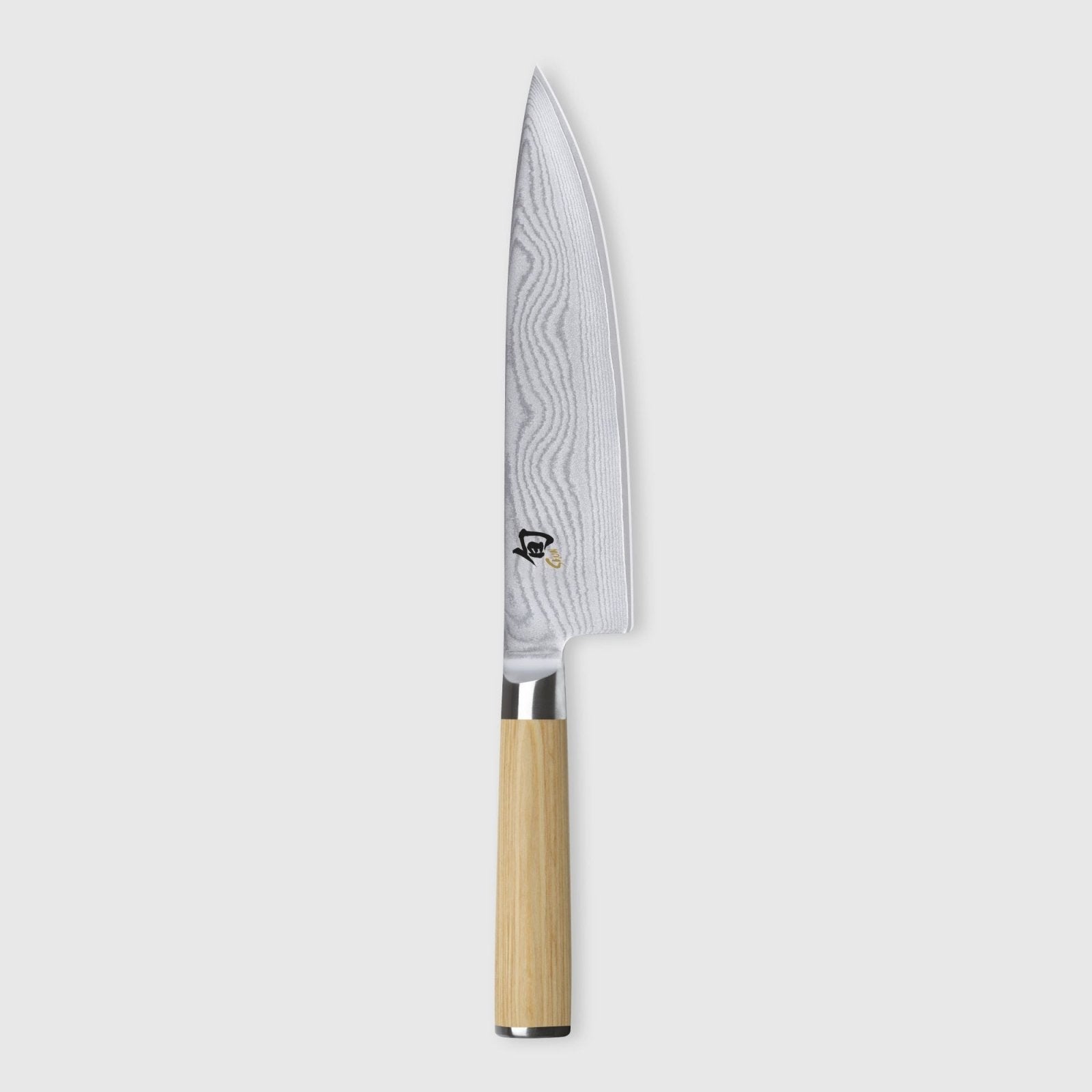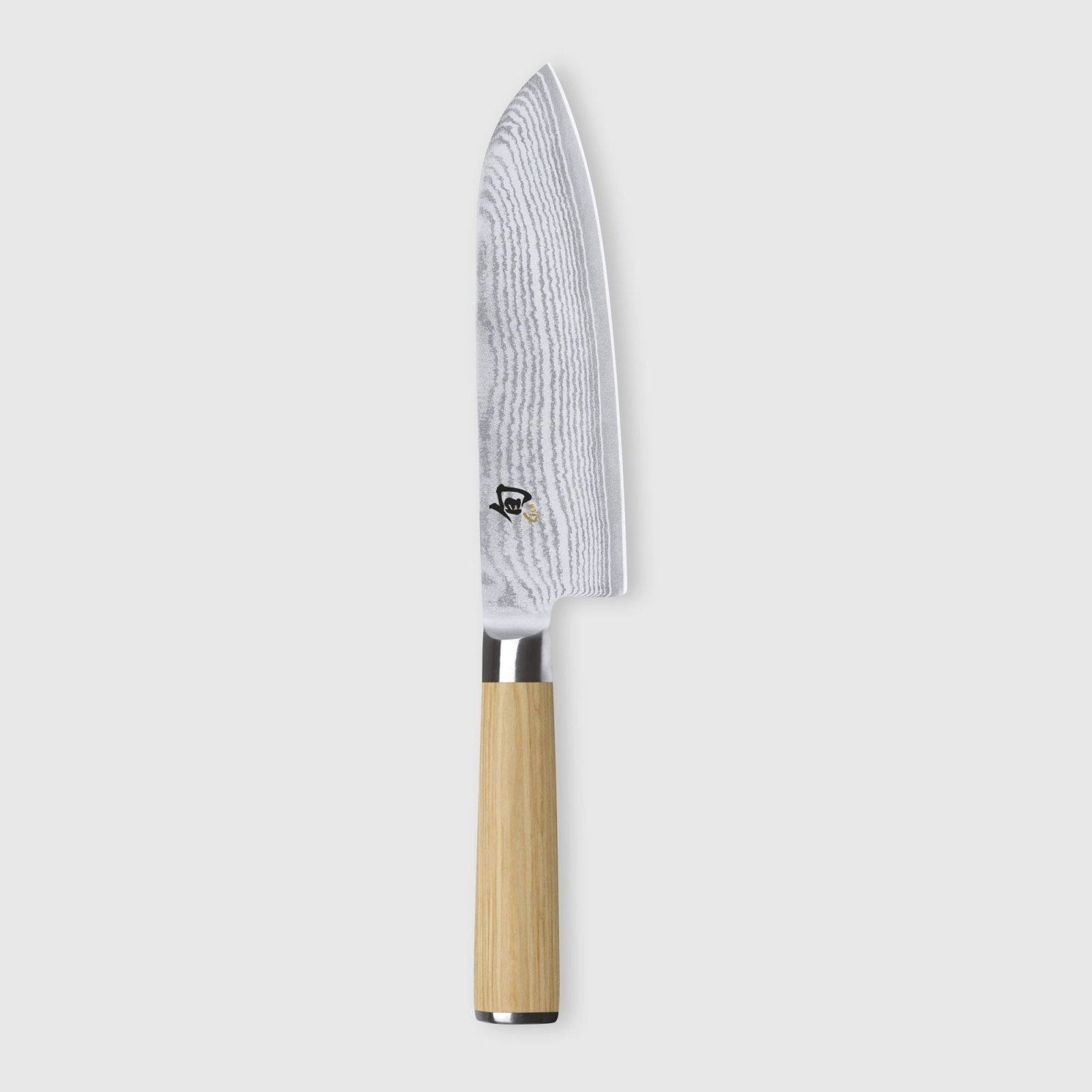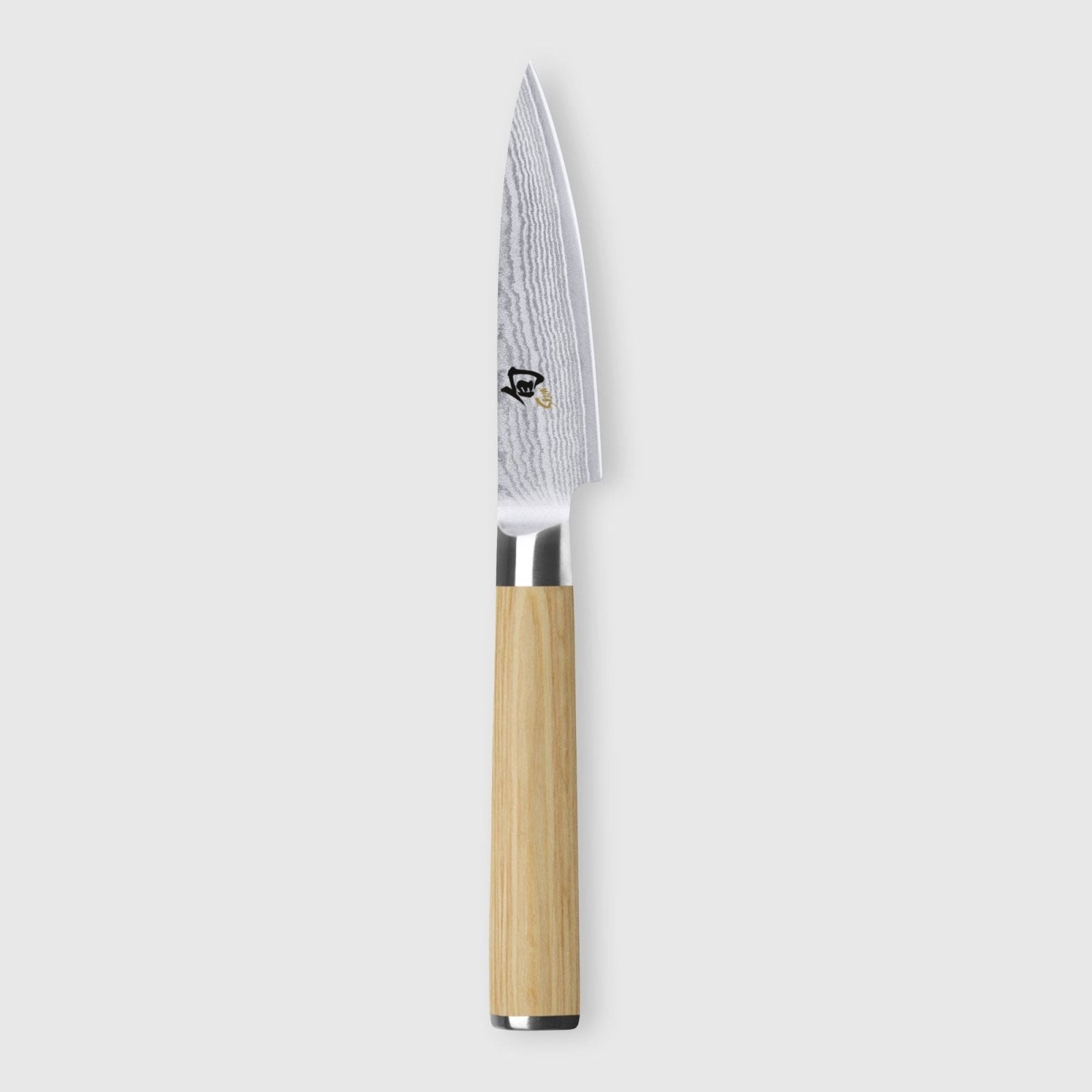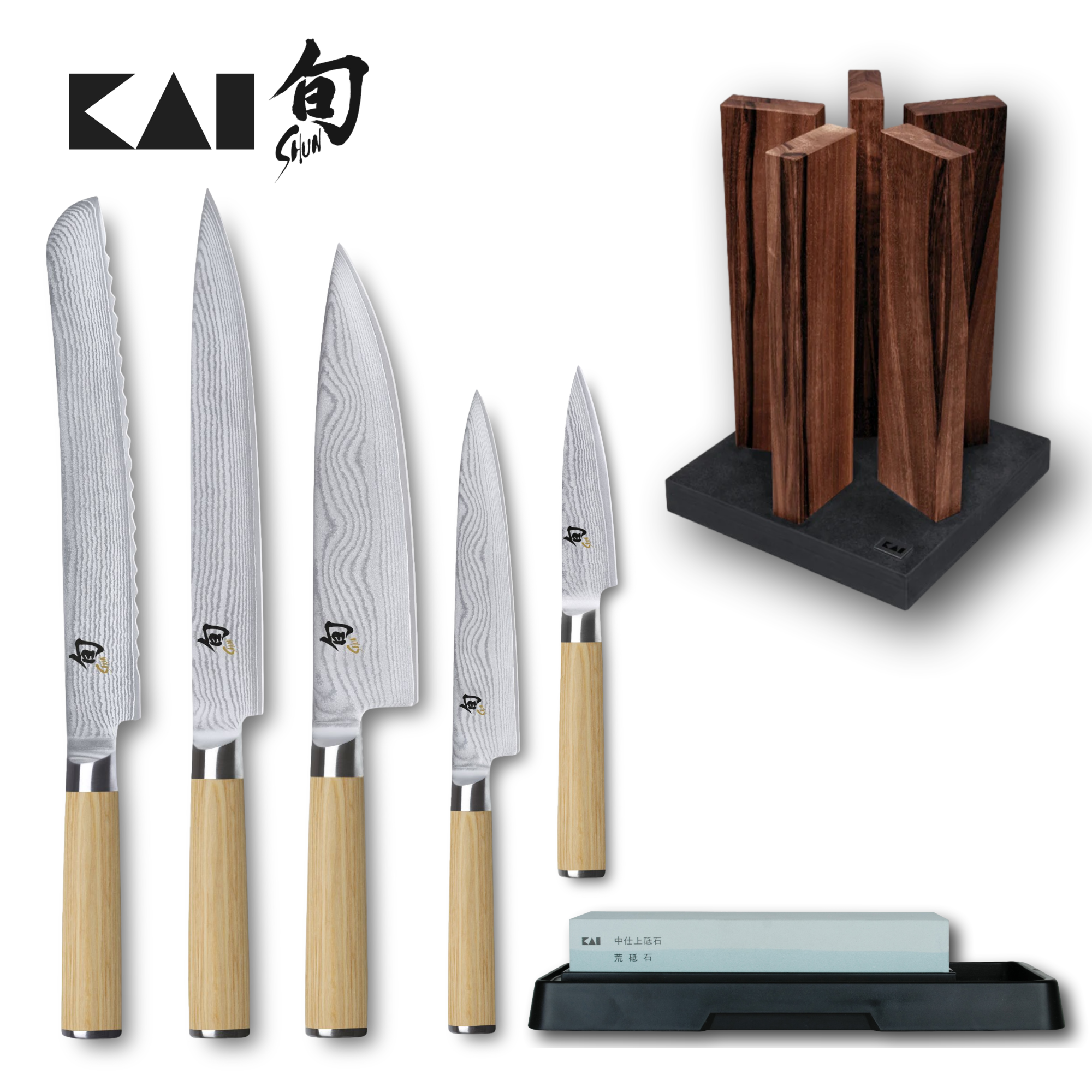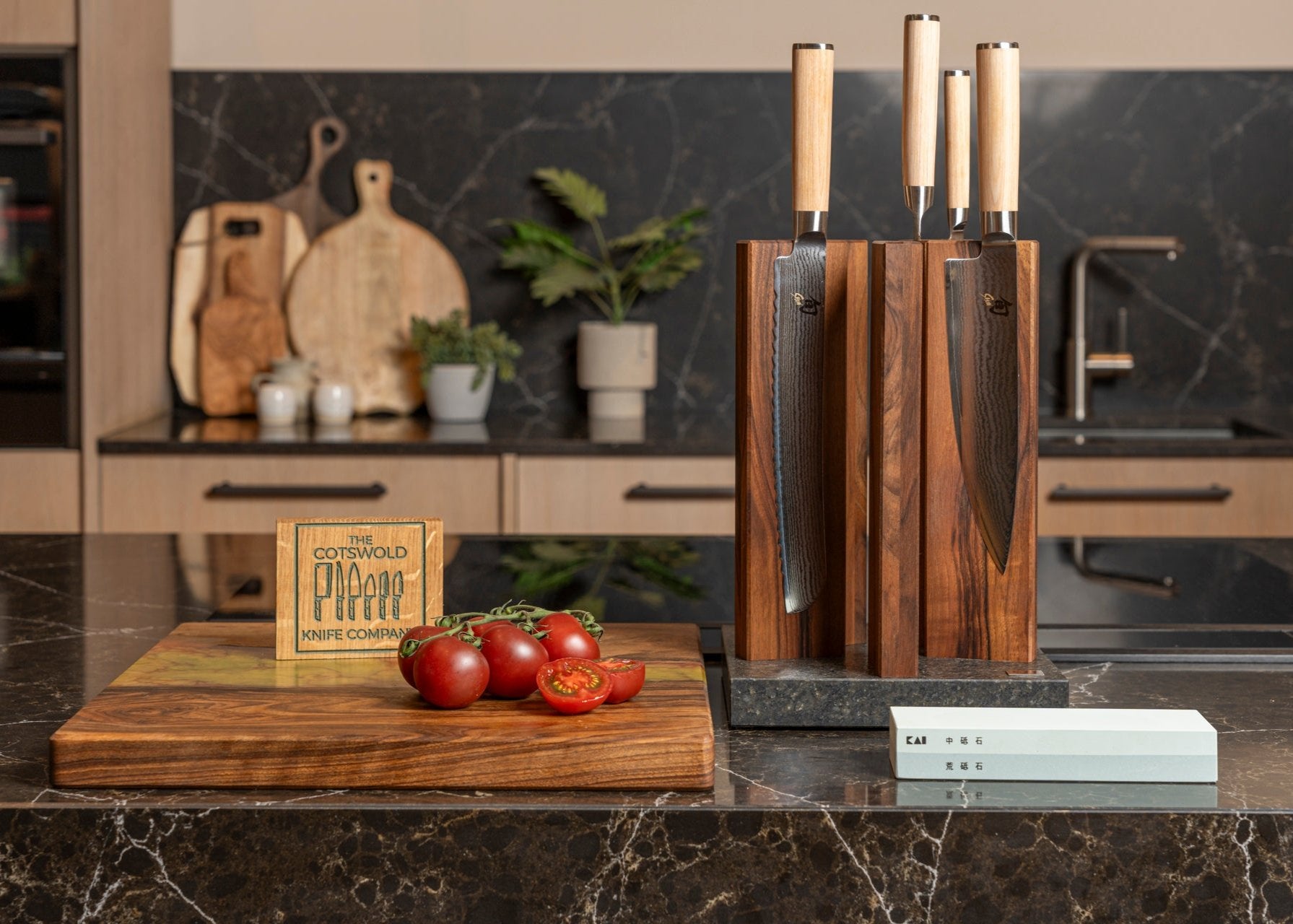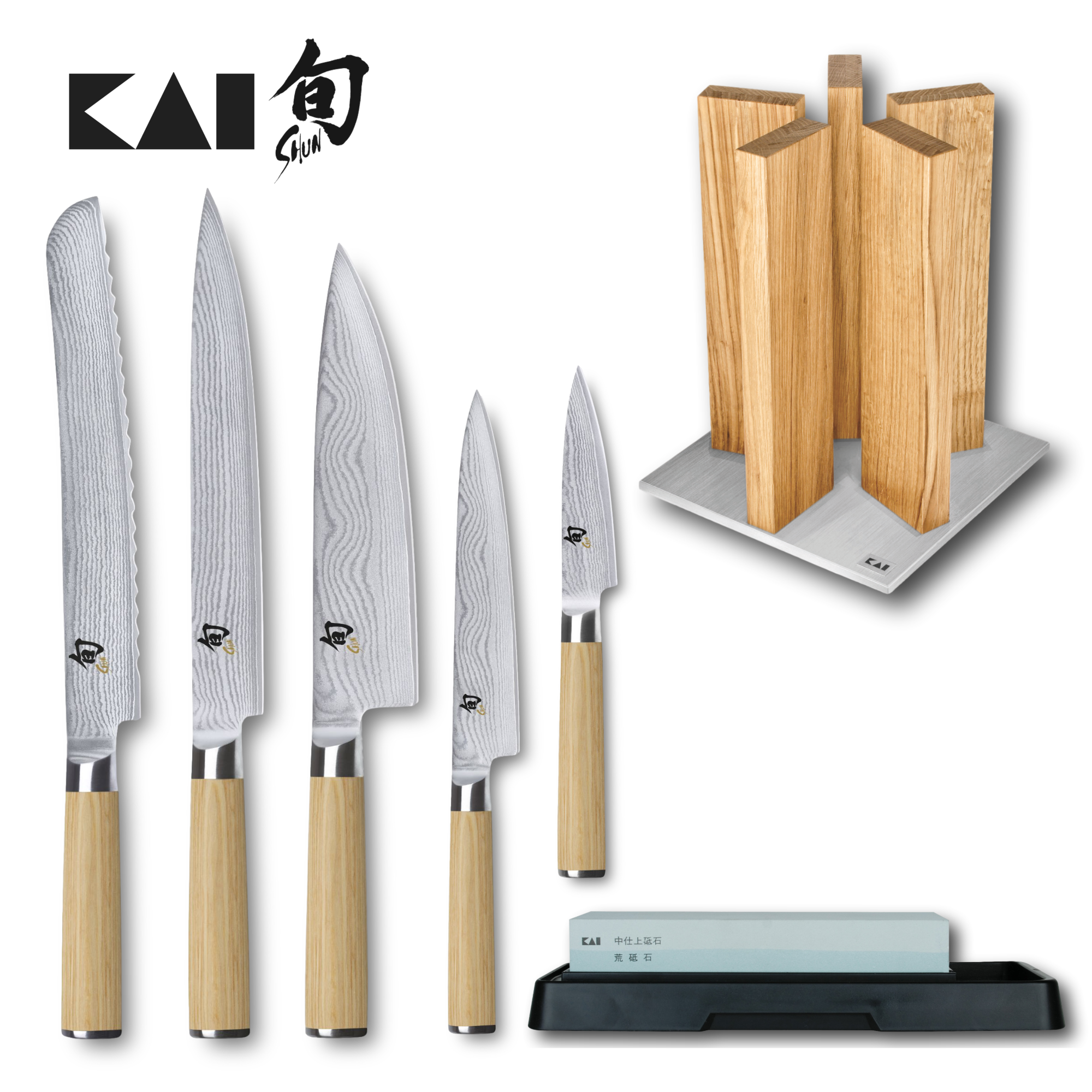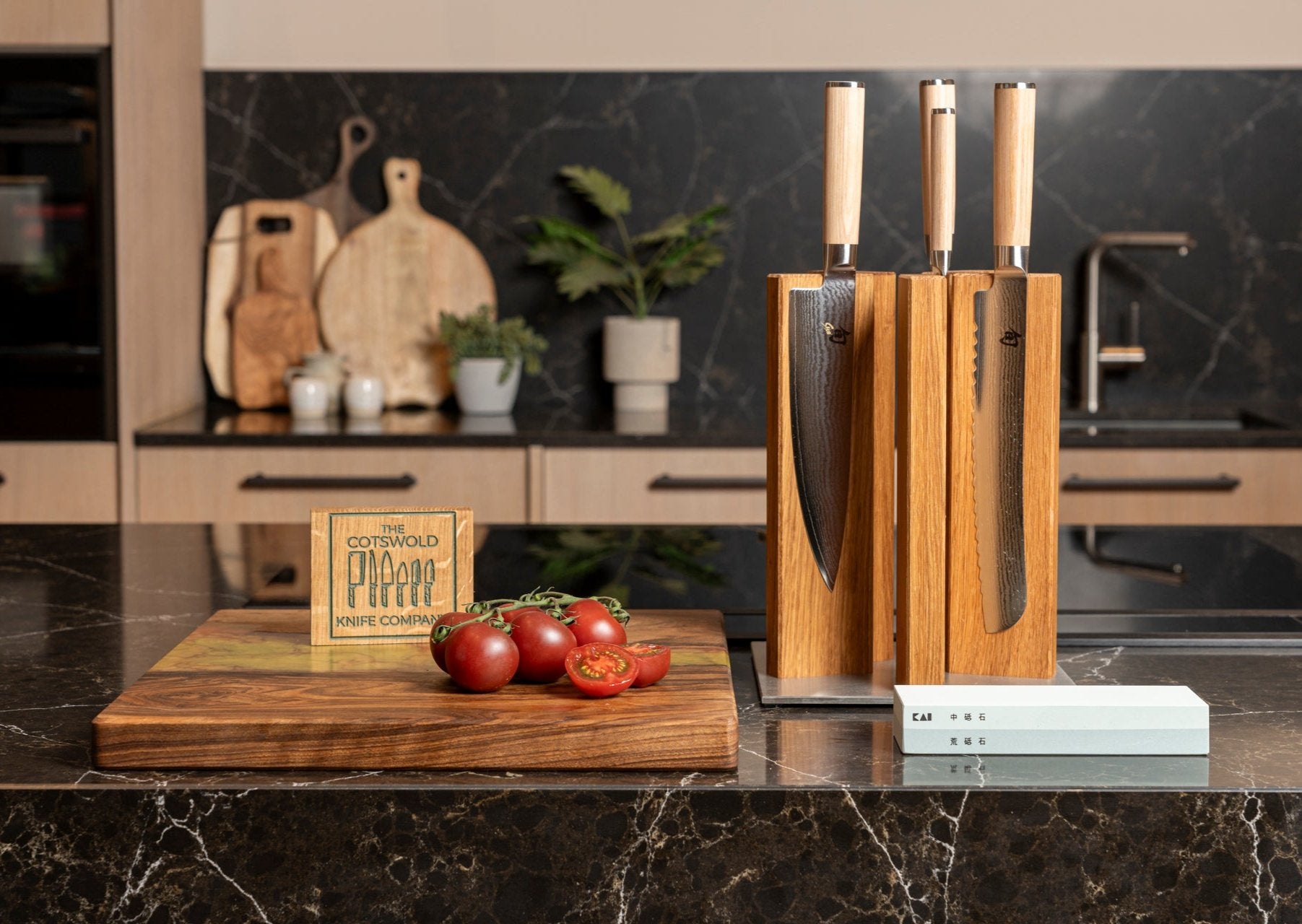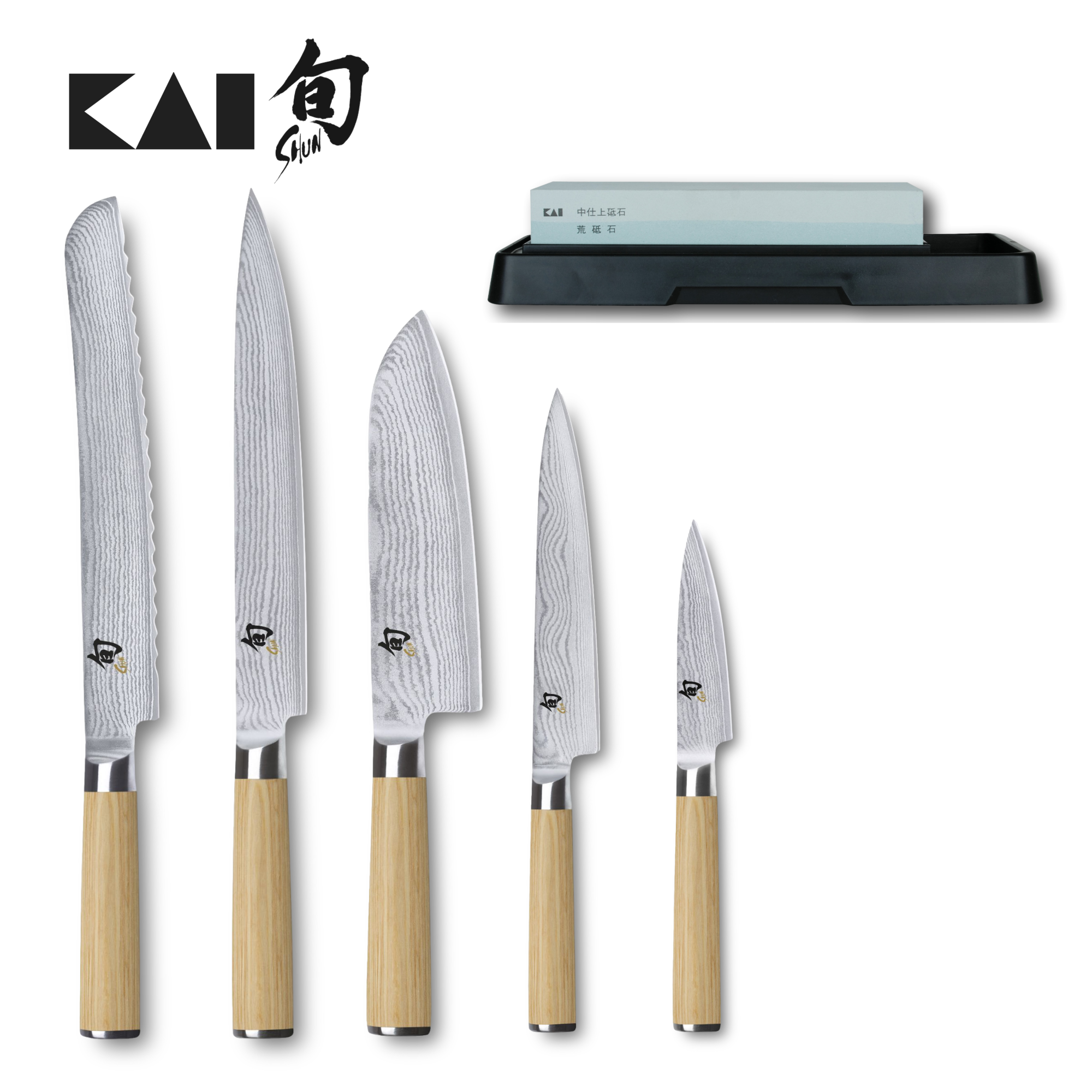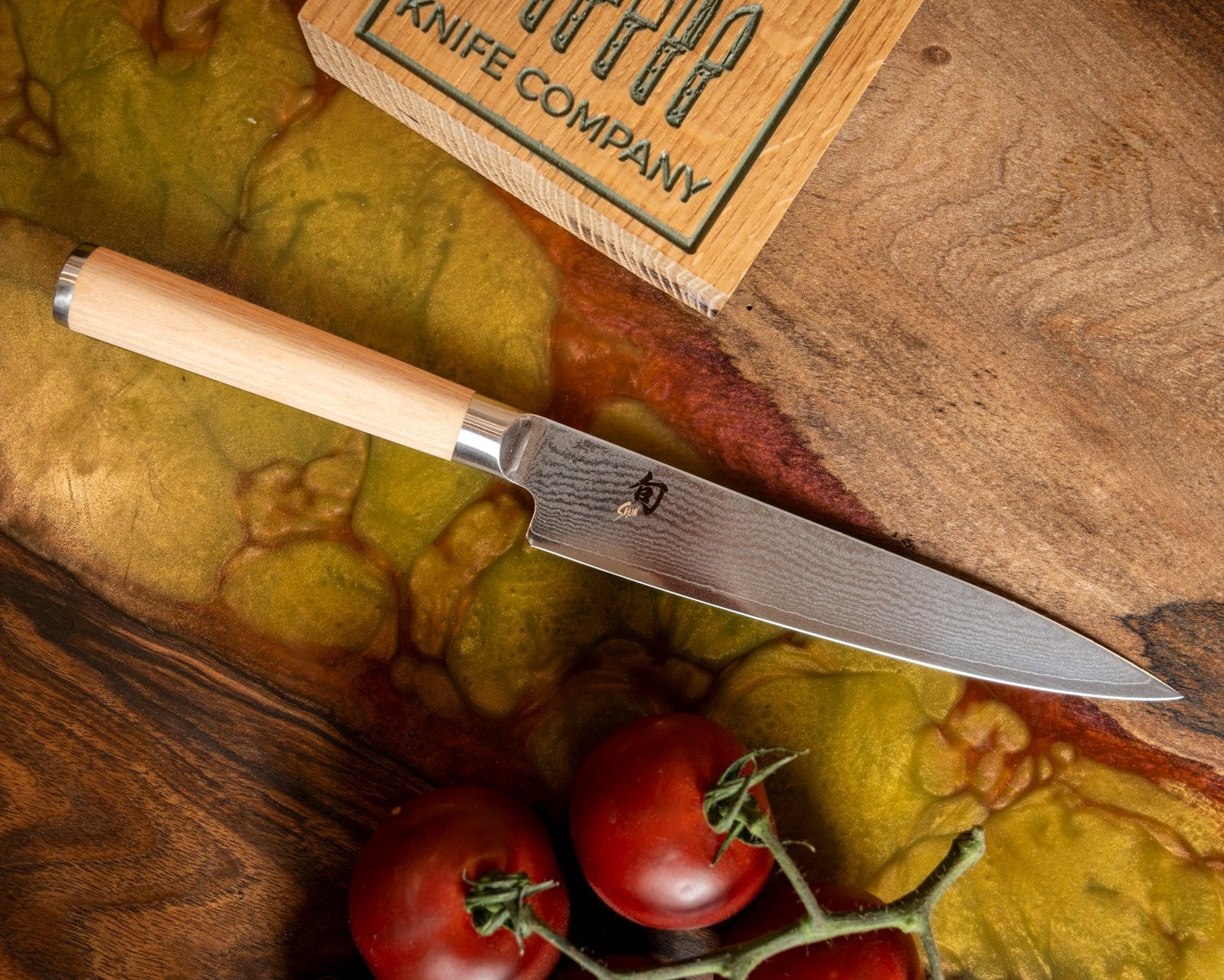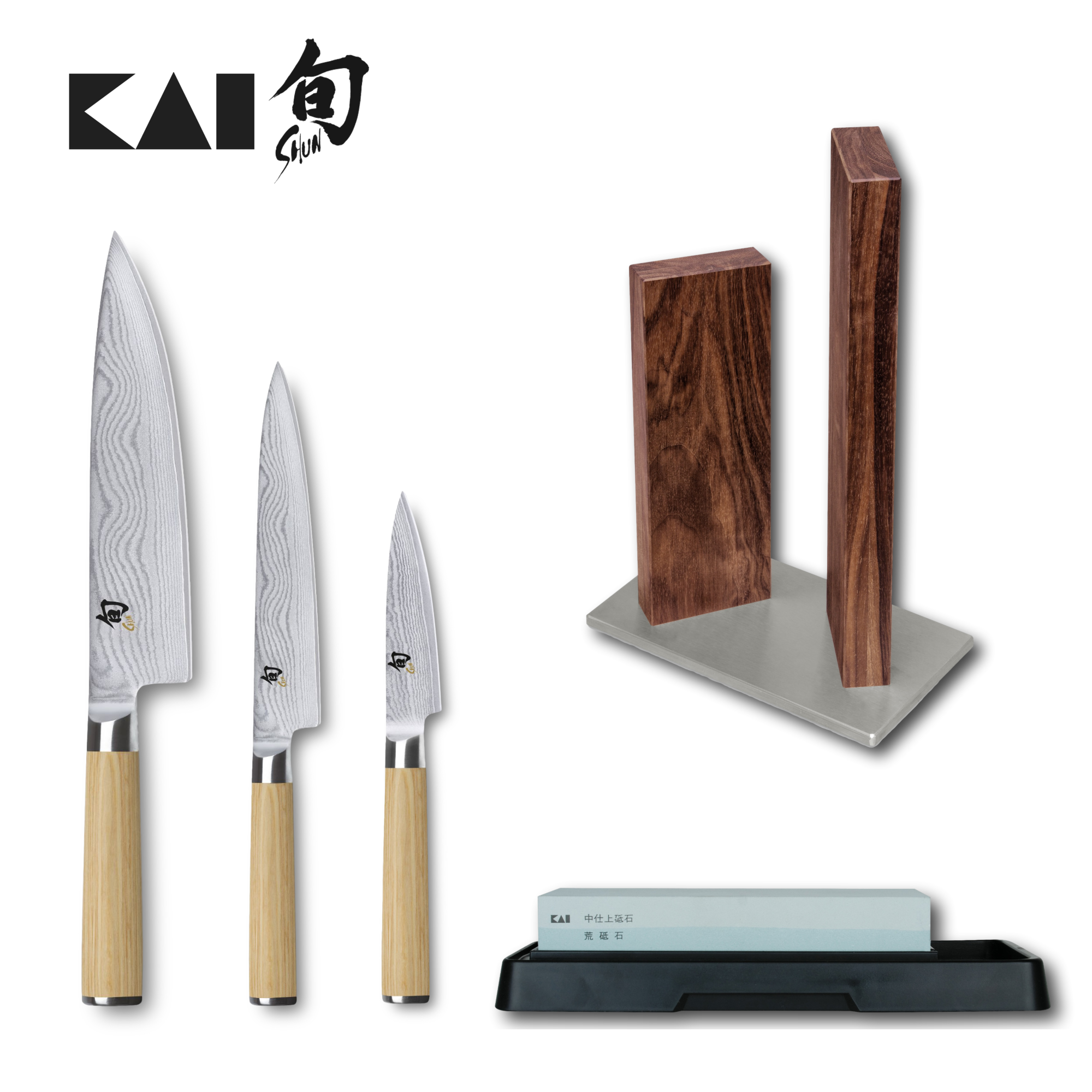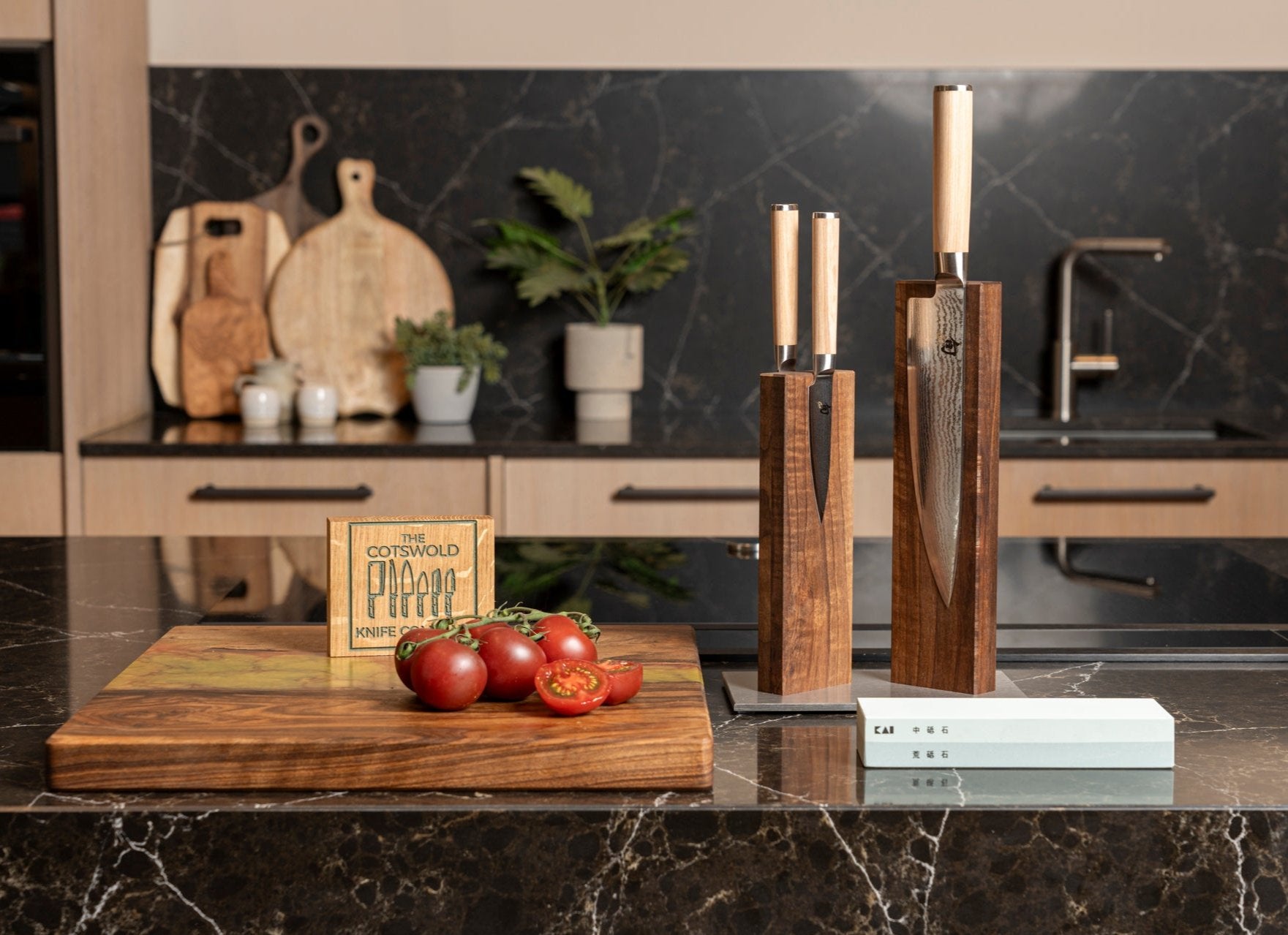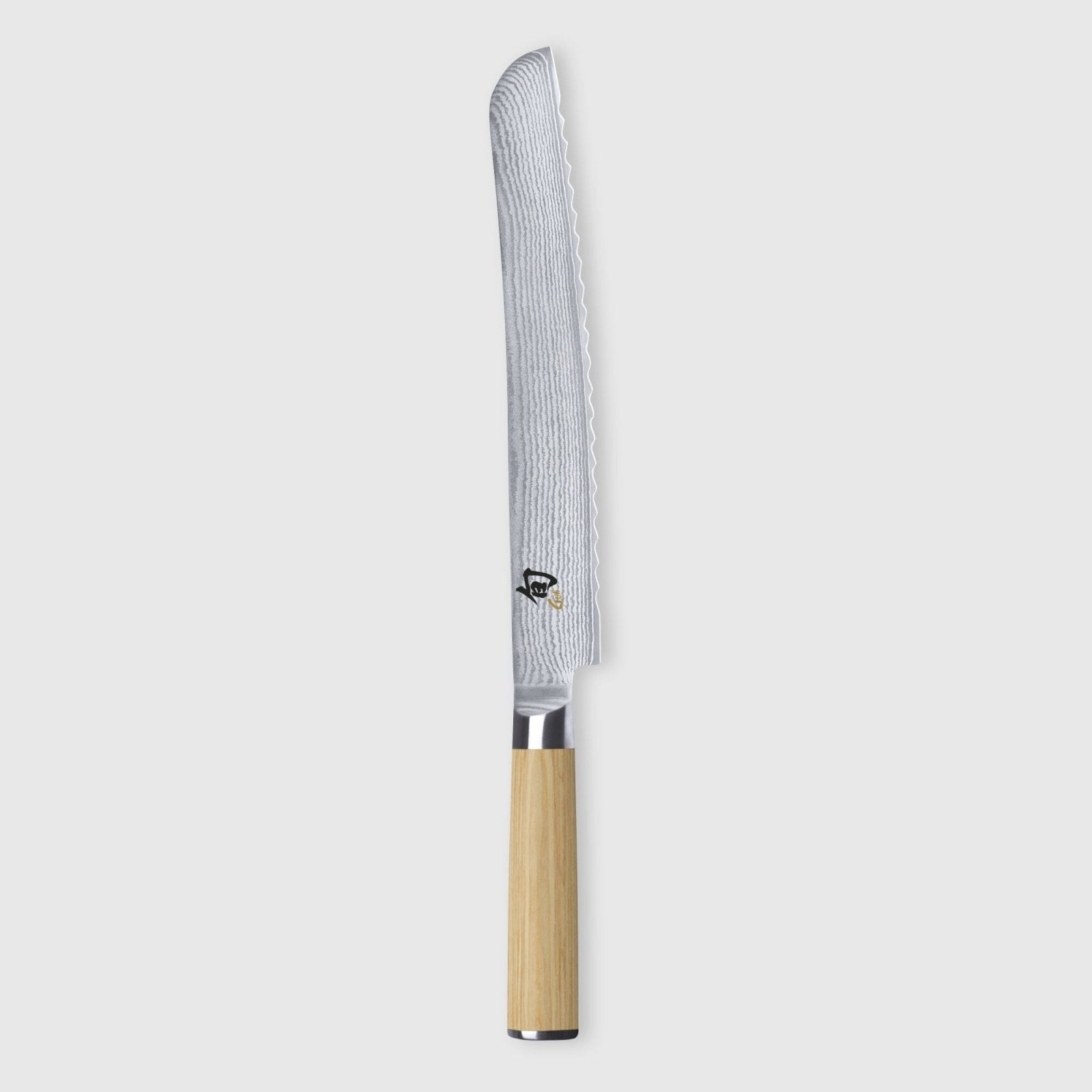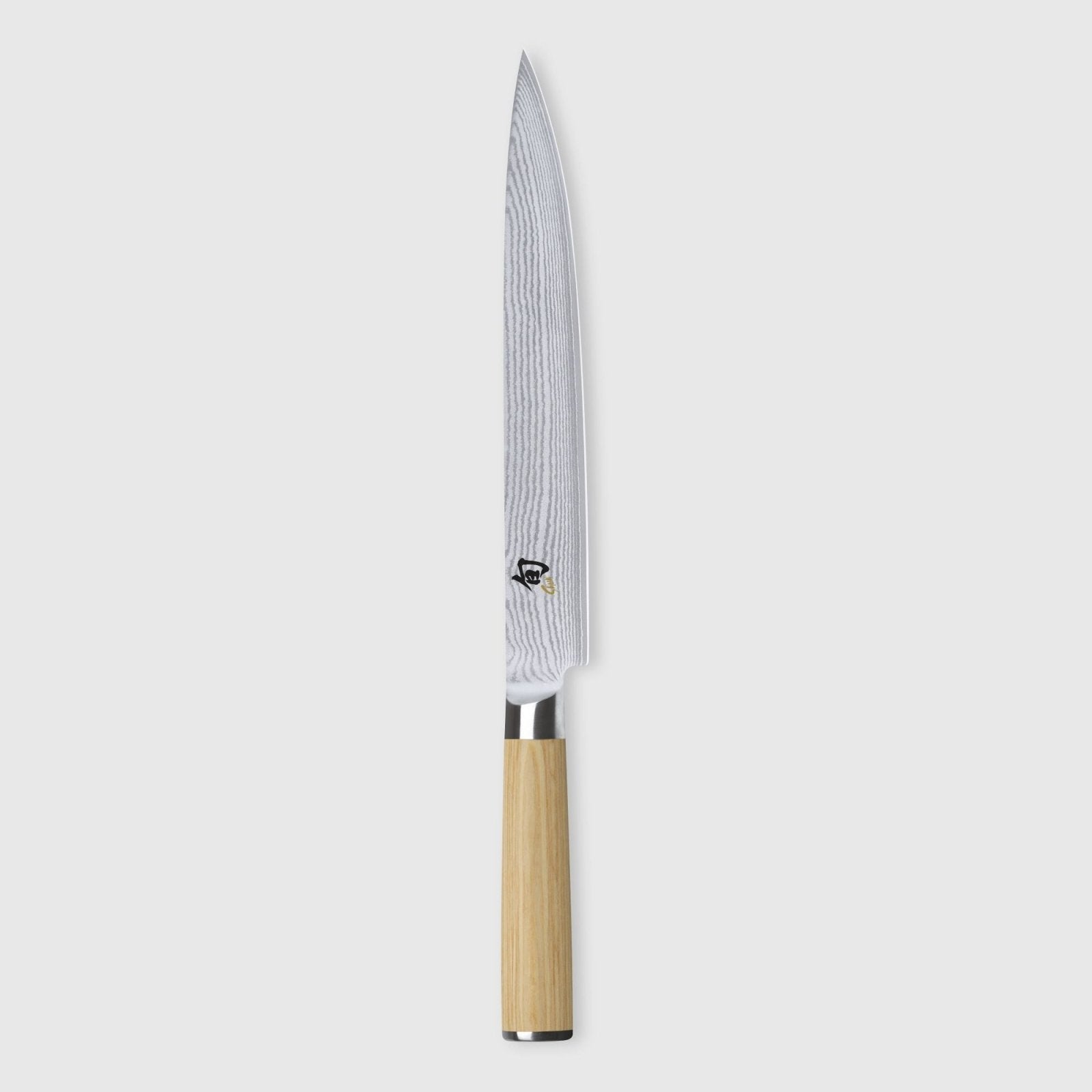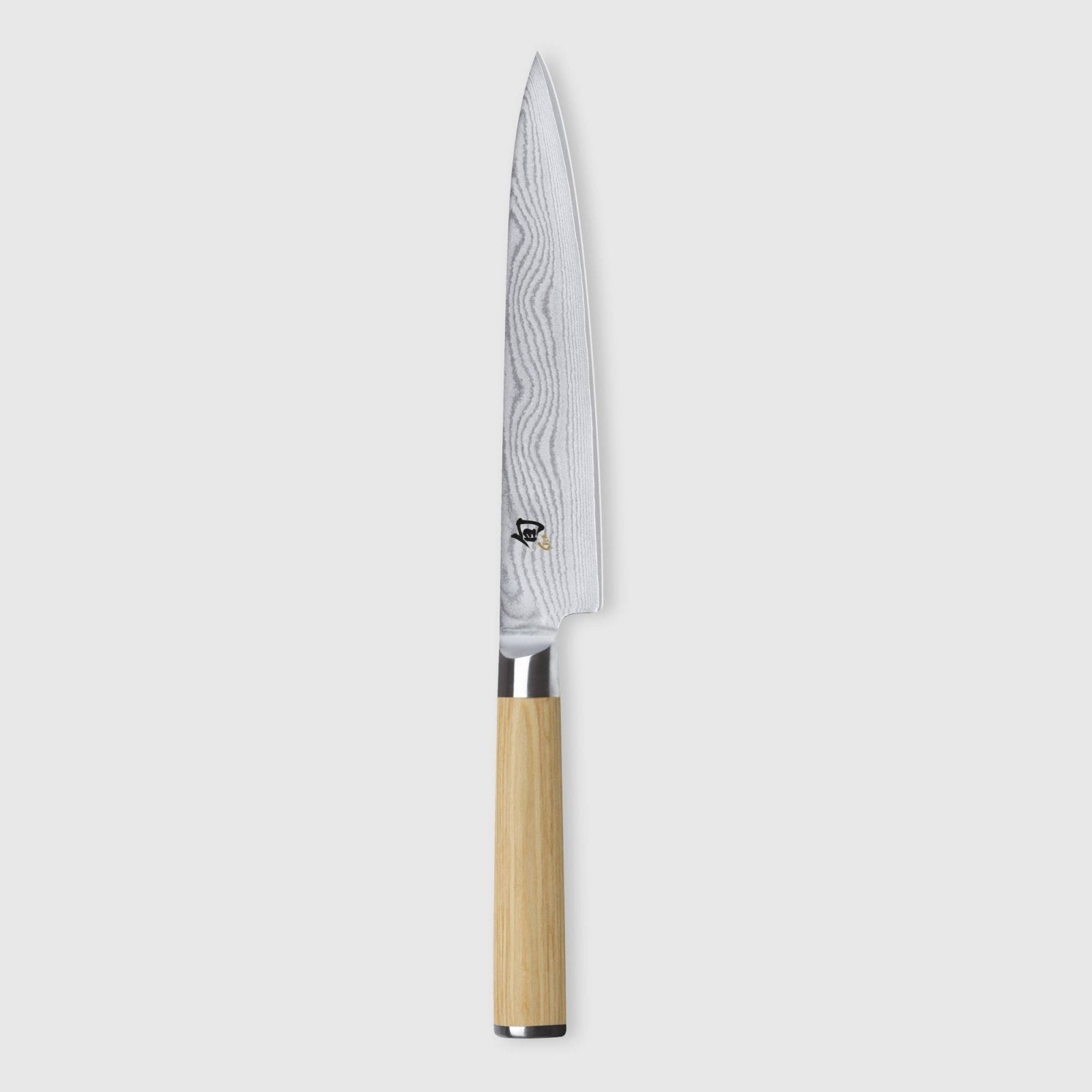
KAI SHUN WHITE
Discover the Art of Culinary Excellence
For over 115 years, KAI have been producing knives following the traditions of the legendary samurai of old Japan. Since starting as a family business in 1908 at Seki, KAI has developed into an international company producing exceptional quality knives. They are meticulously handcrafted in the historic city of Seki, Japan, each blade tells a story of tradition interwoven with innovation.
The Shun Classic White Series embodies the fusion of the ancient art of Japanese samurai swordsmithing with the cutting-edge manufacturing techniques of today. This fusion culminates in a line of Damascus knives that stand out for their exceptional quality, designed meticulously to maintain sharpness over time, making them perfect for professional culinary environments. The beauty of the Shun Classic White knives is immediately apparent, with their distinctive semi-gloss Damascus steel pattern, which features 32 layers. This, paired with the sleek, tapered handle crafted from pakkawood, creates an aesthetically pleasing design that doesn’t compromise on quality or functionality.
Key Features
- ROCKWELL RATING: 61 (±1) HRC
- CRAFTSMANSHIP: Handmade
- HANDLE Pakkawood
- MATERIAL VG-Max core steel with 32 damascus layers on each side Made in Japan
FAQs
Kai and Shun are not the same. Kai Corporation is a renowned cutlery company from Japan with a wide range of high-quality knives and tools. Shun is a premium line of kitchen knives under Kai, celebrated for its exceptional craftsmanship and innovative designs. While Shun knives are a proud part of Kai's offerings, the Kai brand encompasses a broader selection of cutting tools beyond just the Shun line.
Core Material
- VG-MAX Steel: The core of the Kai Shun knives is made from VG-MAX steel, an advanced formula exclusive to Shun. This proprietary alloy is an improvement upon the highly regarded VG10 steel, enriched with higher levels of carbon for increased strength and durability, chromium for enhanced corrosion resistance, and additional elements like cobalt and tungsten to improve toughness and edge retention. This results in a blade that is exceptionally sharp, durable, and capable of withstanding the demands of both professional kitchens and home cooking environments.
Layering Technique
- 32-Layer Damascus Cladding: The Kai Shun series features a blade that is clad in 32 layers of high-carbon stainless steel, creating a striking Damascus pattern. This layering not only contributes to the aesthetic appeal of the knife but also enhances its performance. The Damascus layering provides flexibility and strength to the blade, ensuring that it can endure the rigors of daily use without compromising its sharp edge. The varied hardness of the steel layers also helps in reducing brittleness, making the knife both durable and capable of maintaining its sharpness over time.
Handle Construction
- PakkaWood Handles: Handles in the Kai Shun series are typically made from PakkaWood, a composite material that combines the beauty of natural wood with the durability of plastic. PakkaWood is waterproof, resistant to both heat and moisture, and provides a comfortable, secure grip. The ergonomic design of the handles ensures balance and control, allowing for precise and effortless cutting motions. The shape is tailored to fit comfortably in the hand, reducing fatigue during extended use.
Artisan Craftsmanship
- Handcrafted in Japan: True to the heritage of Sakai, Japan, a city renowned for its sword and knife making, each Kai Shun knife is handcrafted by skilled artisans. The process involves more than 100 meticulous steps, from forging the steel to the final polishing. This attention to detail ensures that every knife meets the high standards of quality and performance that the Kai Shun range is known for.
Aesthetic and Functional Design
- Aesthetics: Beyond their functionality, Kai Shun knives are designed to be visually stunning. The Damascus pattern on the blade is not only beautiful but also functional, as it helps to reduce food sticking to the blade during slicing. The elegant design extends to the handle, where the combination of shape, material, and finish complements the overall aesthetic of the knife.
While it is true that Kai Corporation originated in Japan, not all its products are manufactured there. The company has expanded its operations globally over the years. However, many of their premium knife lines like Shun and Pro series are indeed crafted in Seki City, which has a 700 year legacy in blade mastery, where skilled artisans employ age-old techniques to create each blade.
The manufacturing process involves several stages including forging, tempering, sharpening and finishing - all carried out with meticulous attention to detail. This ensures that every knife that comes out of their factory meets the high standards set by Japanese blacksmithing tradition.
Yes! The design of the ergonomic handles feels great in both your left and right hand.
Kai knives are renowned for their exceptional craftsmanship, quality materials, and innovative design, making them a wise investment for both professional chefs and culinary enthusiasts alike. Here’s why investing in Kai knives is a decision you won’t regret:
- Superior Quality and Durability: Crafted with high-quality materials such as VG-MAX steel, Kai knives offer outstanding durability and edge retention. This means they stay sharper for longer periods. Their robust construction ensures that they can withstand the rigors of daily use, making them a lasting addition to your kitchen.
- Precision Cutting Performance: Kai knives are meticulously sharpened to achieve an optimal angle, ensuring precise and effortless cutting. This precision can make food prep effortless and allows for finer slices and more consistent cuts, which is essential for both professional culinary work and home cooking.
- Ergonomic Design: Attention to detail extends to the ergonomics of Kai knives. Handles are designed for comfort and balance, reducing hand fatigue during extended use.
- Versatility: The Kai knife collection offers a wide range of styles and sizes to suit various cutting tasks, from delicate slicing to heavy chopping. Whether you're filleting fish, chopping vegetables, or slicing bread, there's a Kai knife designed specifically for the task.
- Aesthetic Appeal: Beyond their functional excellence, Kai knives are also beautifully crafted and are very sought after by those trying to level up their kitchen aesthetic. These knives can be seen as pieces of art.
- Warranty and Customer Support: Kai stands behind their products with warranties and excellent customer support. This commitment to customer satisfaction ensures that any issues are promptly addressed, providing peace of mind and safeguarding your investment.
Maintaining your Kai knives involves several essential practices to ensure they stay sharp, durable, and in top condition:
- Cleaning: Always wash your knives by hand with warm water and mild detergent immediately after use. It's important to avoid using the dishwasher, as the harsh environment can damage both the blade and the handle over time. After washing, dry the knives completely with a soft cloth to prevent any rust formation.
- Honing: Regular honing is key to keeping your knives sharp and maintaining their edge. Use a honing steel before or after each use to realign the blade's edge. Hold the steel vertically and gently slide the knife down and across the steel at a 20-degree angle.
- Sharpening: In addition to regular honing, your Kai knives will need periodic sharpening, typically once or twice a year depending on how frequently you use them. You can sharpen your knives using a whetstone, a handheld sharpener, or opt for professional sharpening services.
- Storage: Proper storage is crucial for the longevity of your knives. Store your Kai knives in a knife block, on a magnetic strip, or within protective sheaths. This not only prevents the blades from dulling but also helps avoid accidents. Storing knives in a drawer is not recommended, as they can easily get damaged.
- Cutting Surface: To maintain the sharpness of your knife edges, always use wooden or plastic cutting boards. Cutting on hard surfaces like glass, metal, or stone can quickly dull your knives.
- Avoid Misuse: Remember that these knives are specifically designed for cutting food. Avoid using them for any non-food related tasks, as this can damage the blade.
- Handle with Care: Always be mindful of the knife's balance and handle it with care. Avoid dropping or carelessly tossing your knives, as this can lead to damage to both the blade and the handle.
Shop at Cotswold Knife Company with confidence, knowing we are a verified stockist of Kai knives.


